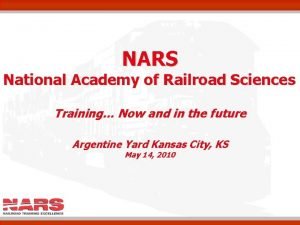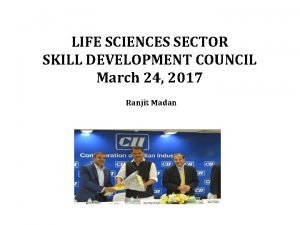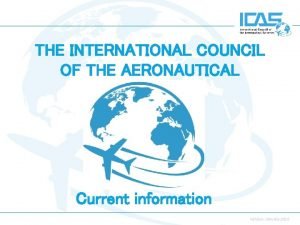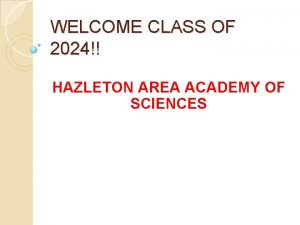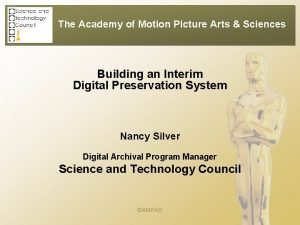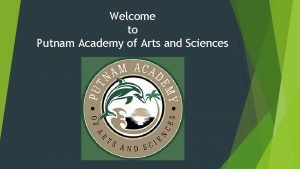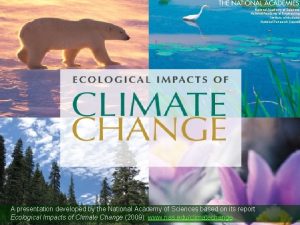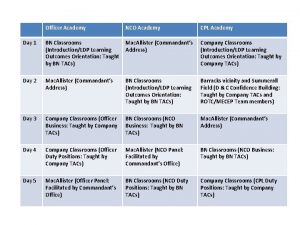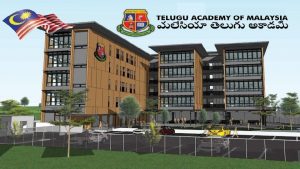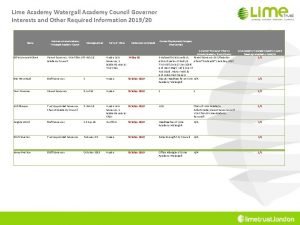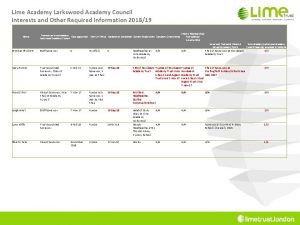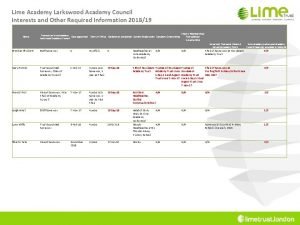NATIONAL ACADEMY OF SCIENCES NATIONAL RESEARCH COUNCIL Research








- Slides: 8

NATIONAL ACADEMY OF SCIENCES NATIONAL RESEARCH COUNCIL Research Priorities: Earth Sciences and Public Health Board on Earth Sciences and Resources Board on Health Sciences Policy Sponsors: National Science Foundation U. S. Geological Survey National Aeronautics and Space Administration

The National Academy of Sciences was established by President Lincoln in 1863 to honor the nation’s eminent scientists, and to arrange a more formal conduit for advice to the federal government from the science community The National Academies (National Academy of Sciences, National Academy of Engineering, Institute of Medicine, National Research Council): • provide independent advice to the nation • are essentially consultants for (predominantly) federal agencies

• provide assessments of the current status of research rather than undertaking new research • subject to FACA • strict bias and conflict of interest rules • seek broad and open input, but deliberate in closed session • reports are confidential until externally reviewed and released • audience is typical “Hill staffer”

Statement of Task A National Research Council ad hoc committee will assess the present status of research at the interface between medicine and earth science, and will advise on the high priority research activities that should be undertaken for optimum societal benefit. The committee will report on the most profitable areas for communication and collaboration between the earth science and medical communities, recognizing both the infectious disease and environmental components. The committee is specifically tasked to:

• Describe the present state of knowledge in the emerging medical geology field. • Describe the connections between earth science and public health, addressing both positive and negative societal impacts over the full range from large-scale interactions to micro-scale biogeochemical processes. • Evaluate the need for specific support for medical geology research, and identify any basic research needs in bioscience and geoscience required to support medical geology research.

• Identify mechanisms for enhanced collaboration between the earth science and medical/public health communities. • Suggest how future efforts should be directed to anticipate and respond to public health needs and threats, particularly environmental change. as a consequence of

Work Plan We are in the final stages of nominating a study committee, which will have approximately equal earth science (e. g. , biomineralogy, environmental geochemistry, geospatial analysis, hydrology, soil science, etc) and public health (e. g. , environmental epidemiology, infectious diseases, public health, toxicology, dental medicine, etc) expertise. The committee will hold four meetings, the second of which will be a workshop (probably in Irvine, CA in late summer), and prepare a report.

The consensus report is due for release by August 2005, and will then be widely disseminated.
 National academy of railroad sciences
National academy of railroad sciences National academy of sciences forensic science
National academy of sciences forensic science Human science tok
Human science tok Lsssdc certificate download
Lsssdc certificate download International council of the aeronautical sciences
International council of the aeronautical sciences Hazleton area academy of sciences
Hazleton area academy of sciences Academy of motion picture arts and sciences benefits
Academy of motion picture arts and sciences benefits Hawaii academy of arts and sciences
Hawaii academy of arts and sciences Arts and science school
Arts and science school
